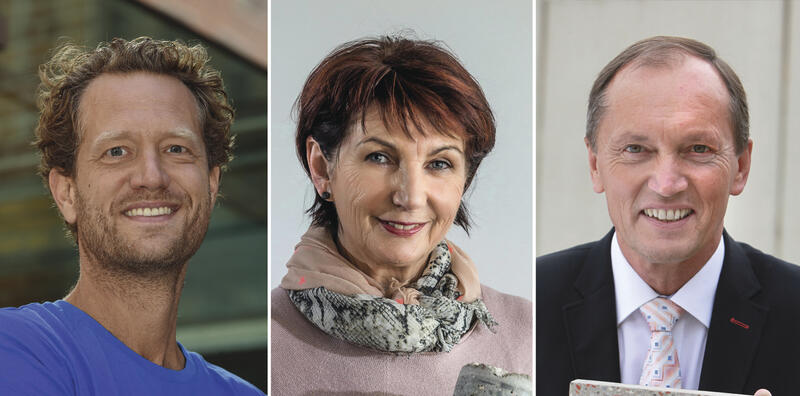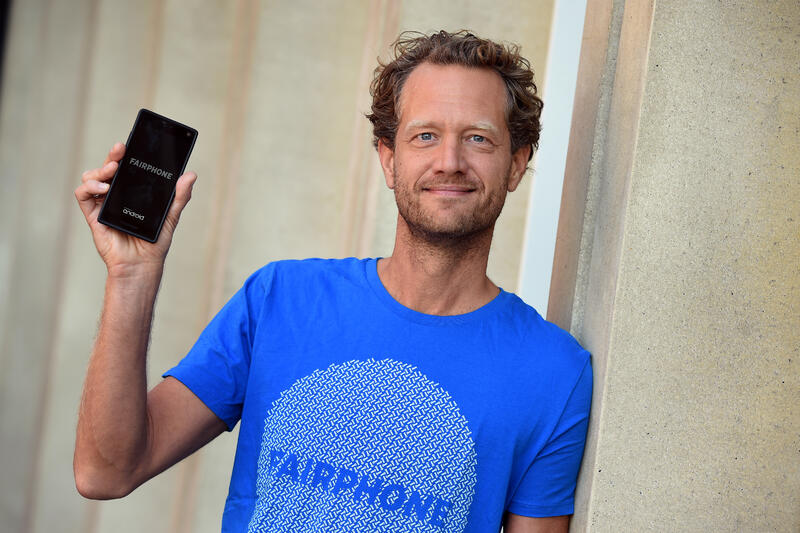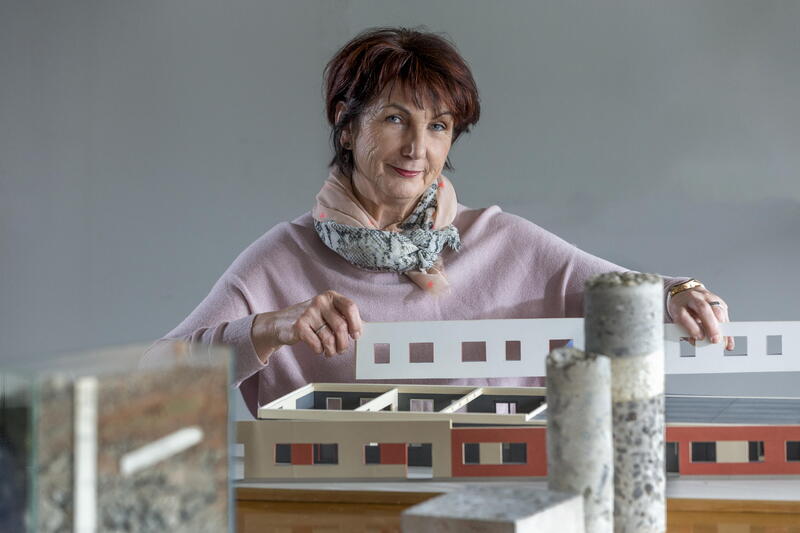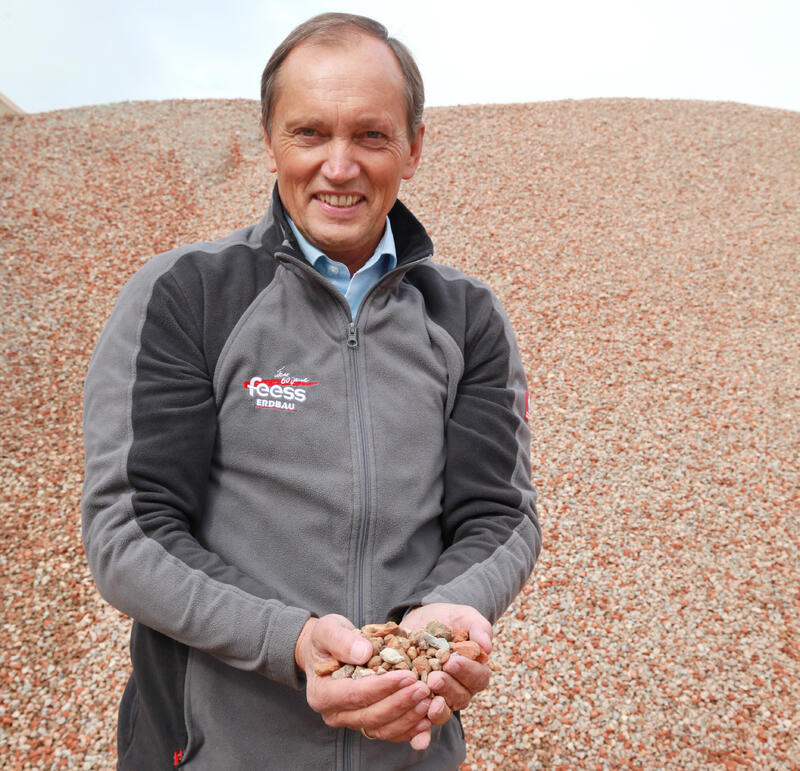Creative Minds Lead the Way in the Global Resources Transition
Osnabrück. To send a clear signal regarding the protection and sustainable use of natural raw materials, so that the basis of life on the planet Earth is preserved, for future generations as well as our own: this is one of the major goals which the German Federal Environmental Foundation (Deutsche Bundesstiftung Umwelt, DBU) aims to achieve with the presentation of its 2016 German Environmental Prize. “Representative research indicates that we are already pushing the earth’s environment past the limits of what it can take,” warns DBU General Secretary Dr. Heinrich Bottermann. Every year, the so-called “World Overshoot Day” is reached earlier in the year. On this day, all resources have been used up which the Earth can replace in that year. Bottermann: “We need creative pioneers who can show us how we can achieve a transformation.” The Environmental Prize recipients are such pioneers: on October 30th in Würzburg, German President Joachim Gauck will personally hand to the entrepreneur Bas van Abel (39, of Amsterdam), the scientist Prof. Dr.-Ing. Angelika Mettke (64, of Cottbus), and the entrepreneur Walter Feeß (62, of Kirchheim/Teck) the largest independent environmental prize in Europe. The prize is endowed with a total financial award of € 500,000.00.

© DBU/Himsel/Weisflog/Auerbach
Pioneers in the sustainable use of valuable resources
The fundaments of life which our planet provides are, according to statements published by the DBU, only available in limited quantities. Thus the use of raw materials must be managed responsibly. All three Environmental Prize recipients are, in their respective industries or fields, pioneers in the sustainable use of valuable resources. While van Abel, founder and Managing Director of Fairphone B.A., is blazing new trails in the Information- and Communications industry to combat the excessive consumption of cellphones and smartphones, Prof. Dr.-Ing. Angelika Mettke of the Brandenburg Technical University (BTU) in Cottbus-Senftenberg and Walter Feeß, Managing Director of the Heinrich Feeß GmbH & Co. KG, are advancing the use of reusable concrete components and recycled concrete. In both industries, the mining of raw materials is destroying extensive and valuable natural habitats. And in both industries there are possibilities for curbing this use – and thus preserving natural living spaces - by aiming for a longer life cycle for these products, whether smartphones or concrete.
The necessary transformation in the use of smartphones
“In dealing with the use of cellphones and smartphones, which are now more numerous on Earth than humans, we urgently need a transformation,” says Bottermann. “Each of these devices contains valuable metals and components which can often be extracted only at the cost of great harm to the environment. Most of these devices, however, are phased out or thrown away after only a few years, although they are still fully functional.” Furthermore it is often not even possible to replace the most important components such as the battery or the display, because they are not constructed or designed in a manner conducive to repair. The Fairphone is different. The company named after the product is a “social enterprise”. Its goal is the manufacture of an ethically viable smartphone which causes the least possible damage to the environment and causes no exploitation of humans. At the same time, the associated production systems are to be made transparent, and problems made visible.

© Himsel/DBU
Fairphone: looking at the entire value chain
“Throughout the entire value chain, Fairphone has developed strategies for improving the conditions which currently dominate the process,” Bottermann states. Individual components are replaceable, so that raw materials can be saved through longer life cycles and circuits can be closed through, for example, recycling. Furthermore: “The company is constantly improving the manufacture process, in order to gradually make the materials, the devices themselves, and the cost breakdown more transparent. Social standards, workers’ safety standards and environmental standards on location are to be improved, so that persons in conflict regions can be employed under fair conditions, and the environmental effects can be held to a minimum.”
Recycling economy in the construction industry: utilize instead of dumping
This year’s other two Environmental Prize recipients work in a completely different industry. Bottermann honored Mettke and Feeß with these words: “They have broken out of rigid, fossilized structures in the management of raw materials, and have brought a new dimension to the fundamental principle ‘utilize instead of dumping.’ Mettke and Feeß are known as active campaigners for the recycling economy in the construction industry and are thus not only role models, but also trailblazers for an entire industry. They have made concrete, the major construction material of the 20th Century, more environmentally friendly to a remarkable extent.”

© Weisflog/DBU
Mettke and Feeß steer raw materials consumption onto sustainable tracks
The growing world population, rising living standards and wasteful, thoughtless consumption of resources have led to increasing scarcity of raw materials. In addition there is the related problem of land use: “Gravel is quarried in huge pits for conventional concrete. This involves immense land use and leaves behind barren landscapes, which are difficult and expensive to renaturalize. Furthermore, spaces which are valuable in agriculture and forestry are lost permanently for such use. Using concrete rubble from demolition sites for recycled concrete is an important mainstay in limiting wasteful land use and slowing the growth of landfills,” according to Bottermann. And gravel pits are rarely located near the residential areas where the concrete is needed. This means long transportation routes between excavation areas and construction sites are necessary. By eliminating even a driving distance of 40 kilometers, in purely statistical terms, the climate damage to a small town of 35,000 residents can be prevented. Bottermann: “Through their tireless advocacy of construction materials recycling, this year’s Environmental Prize recipients Mettke and Feeß have succeeded in steering the consumption of raw materials onto sustainable tracks. Thus they continue to make a superb contribution to the protection of our resources and of our climate.”
Mettke combines modern building practices with sustainable environmental protection
Bottermann gave more specifics: “Professor Angelika Mettke unites modern construction and sustainable environmental protection in a remarkably committed manner. Even at a time when raw material shortages did not yet play such a great role, she fought persistently for her cause and brought widespread attention to the environmental problems associated with demolition- and dismantling processes. With courage, ambition and expertise she continues today to convince many skeptics. We can thank her proactive engagement for the fact that materials cycles have been revamped and improved, and that many new skilled jobs have been created.”
Feeß: Accepting responsibility with entrepreneurial courage
Like Mettke, who is a Doctor of Civil Engineering, the entrepreneur Walter Feeß is also known as a pioneer in recycled concrete. “His commitment essentially arises from a deeply-felt sense of responsibility to future generations and thus involves entrepreneurial activity which is often about more than just profit,” said Bottermann. However, this entrepreneurial courage can also pay, as the success of his flourishing building materials business demonstrates.
Leading competitive player with a future-oriented vision
“We see it as very positive and groundbreaking when scientists and entrepreneurs, just like politicians and consumers, pose questions about products’ origins, manufacture, and recycling potential, and attempt to change and improve the system,” said Bottermann. What is really at stake is this: only new visions can enable us to provide nine billion humans on Earth with a decent life by the middle of this century. It will be those entrepreneurs who lead the way in the implementation of such future-oriented visions who will be the leaders in world competition.

© Auerbach/DBU